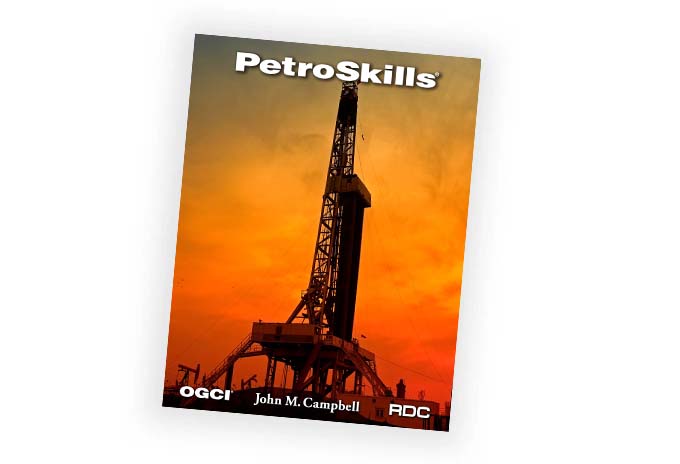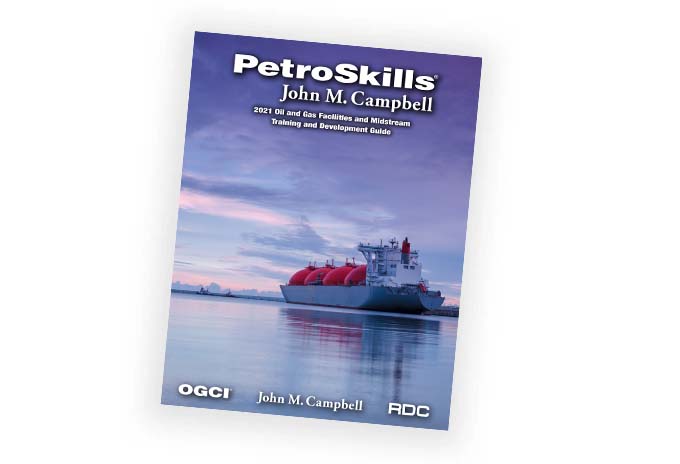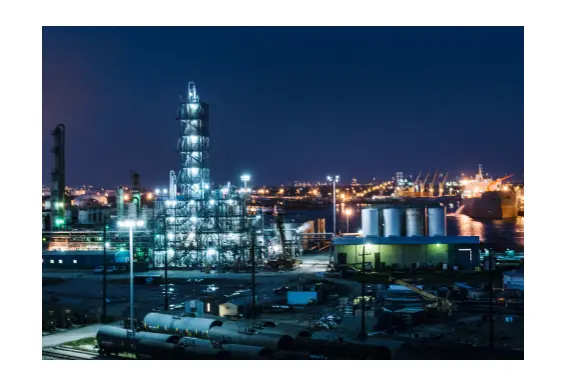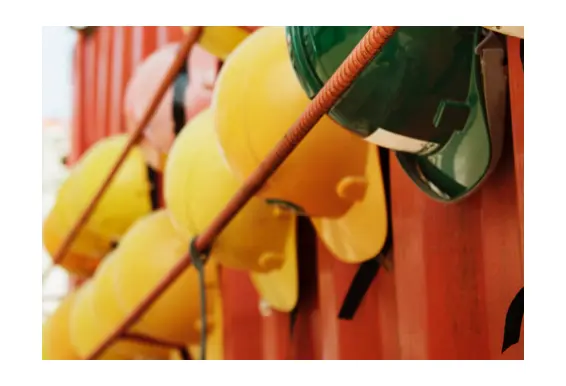Black Oil Basics: An Introduction to PVT
This webinar is designed for anyone who is involved in subsurface and production that wants to understand the different types of reservoir fluid and how pressure and temperature changes impact the behaviour of fluids both in the subsurface and through surface facilities.
https://petroskills.com/resources/webinars/volatile-pvt
Volatile PVT: Diving into Gas Condensate and Volatile Oil
This webinar is designed for anyone who is involved in subsurface and production that wants to understand the challenges associated with volatile fluid characterization, both gas condensates and volatile oils.
https://petroskills.com/resources/webinars/geomechanics-for-ccus
Geomechanical Assessment of Caprock Integrity for Carbon Capture, Utilization and Storage Operations (CCUS)
Geological carbon capture, utilization, and storage (CCUS) is among the most promising emission reduction technologies today. Several CCUS projects are already in operation and many others have been announced all around the world from the US and Europe to China, Middle East and Australia. The main intention of CCUS projects is ensuring that CO2 rem
https://petroskills.com/resources/webinars/reservoir-geomechanics
Four Key Elements of Problem-Solving in Reservoir Geomechanics: an Overview for all Disciplines
Reservoir geomechanics addresses a variety of problems associated with different subsurface operations in both conventional reservoirs and unconventional plays. While the methodologies used for solving these problems seem somewhat different, a high-level problem-solving structure can be identified in many of these solutions.
https://petroskills.com/resources/webinars/cement-squeeze
"To Squeeze Cement or Not to Squeeze Cement?" That is the Question...
This webinar will provide an overview on the rationale for performing a squeeze cement operation as well as the rationale not to. Myths about squeeze cementing will be discussed.
https://petroskills.com/resources/webinars/solids-in-drilling-fluid
Solids in Drilling Fluids... ...Friend or Foe?
This webinar is designed for anyone who is involved in the drilling business and wants to have a better understanding of solids content in drilling fluids... …what are the different types, are they beneficial or detrimental and how much should I have?
https://petroskills.com/resources/webinars/underestimated-resources
Recognizing Additional Productive Potential in Existing Fields - Do you Have Underestimated Resources?
This webinar presents petrophysical log examples of typically underdeveloped conventional resources, conditions causing underestimation of potential, and introduces some methods that can significantly improve identification and volume quantification.
https://petroskills.com/resources/webinars/piping-vibration
Are You Scared of Vibrating Pipework? You Should Be...
This webinar aims to convey an understanding of the causes of piping vibration and solutions to either stop the vibration or make a decision as to whether the vibration is acceptable or not. The webinar discusses detection, location and diagnosis of vibrating pipework.
https://petroskills.com/resources/webinars/co2-capture
CO2 Capture: What Is It and How Would I Do It?
This webinar provides a brief overview of the emerging field of CO2 capture from stationary industrial sources - primarily combustion operations.
https://petroskills.com/resources/webinars/fractionation
Fractionation: Understanding Your Column From First Principles
Fractionation is required to produce saleable liquid hydrocarbon products from extracted NGLs, often referred to as Y-grade in North America. This webinar will discuss fractionation columns that separate the NGLs into the various liquid product commodities.
https://petroskills.com/resources/webinars/distillation-part-2
Help! My Distillation Products are Off-Spec! How Can I Fix This Efficiently?
In this webinar (which builds partly on the earlier presented webinar “Fractionation – Understanding your column from first principles” of October 20, 2020), two very important distillation “thinking-tools/models” are presented to help the operator/technologist to take the most economic corrective action.
https://petroskills.com/resources/webinars/distillation-part-3
Help! My Distillation Column is Flooding! How Can I Get it Operating Again?
In this webinar (which builds partly on two earlier presented Fractionation webinars, of October 20 as well as November 24, 2020), the basics of a distillation column ideal tray design as well as column flooding mechanisms plus remedies are presented.
https://petroskills.com/resources/webinars/hydrates
Hydrates and Hydrate Inhibition: What are Your Options?
The primary objective of this webinar is to review the various hydrate inhibitor options and discuss the pros and cons of each depending upon what the process application is.
https://petroskills.com/resources/webinars/molecular-sieve-dehydration
Molecular Sieve Dehydration: How Does it Work and What Could Go Wrong?
This webinar will discuss how molecular sieves work, the various types of molecular sieves available, and their typical process applications. The equipment and process flow of a molecular sieve dehydration unit will be summarized. The primary issues that can cause lack of performance from the dehydration beds will be discussed.
https://petroskills.com/resources/webinars/operations-for-new-engineers
How to Instill Practical Operations, Control, and Safety Sense to New-hire Engineers
The webinar shows you how to examine your process from an operations mindset. This includes developing cause and effect relationships for the process that may be based on system inefficiencies or other unknown external factors, rather than what the theoretical performance of all equipment and systems should be. A general example of a fractionation
https://petroskills.com/resources/webinars/reliability-analytics
Reliability Analytics: Using Weibull Analysis to Maximize Equipment Reliability
This webinar covers identification of potential failures, how to reduce the impact of such failures and finally how to identify the optimal time for maintenance / replacement of components using Weibull analysis. Attendees will be able to use standard MS-Excel to calculate eta (typical life) and beta (shape) parameters.
https://petroskills.com/resources/webinars/pumping-system
Pumping System Hydraulics and System Curve Development, or... Don't Buy the Wrong Pump and Get Into Trouble with the Boss!
So you spent $150,000 on a super duper centrifugal pump but now it vibrates like crazy and you are getting repeated seal failures and massive cavitation. AARRGGHH. In this webinar we will discuss how to easily analyze your piping system and so you can see why on earth you bought the wrong pump for the job.
https://petroskills.com/resources/webinars/propane-refrigeration
Propane Refrigeration Basics
Propane refrigeration is the most common mechanical refrigeration process. It has a wide range of applications in the gas processing industry. The participant will be refreshed with mechanical refrigeration basics and gain practical understanding of the operation of a propane refrigeration system.
https://petroskills.com/resources/webinars/teg-dehydration
TEG Dehydration: Process Principles and Key Performance Parameters
Dehydration is the process of removing water from a gas so that no condensed water will be present in the system. Water is the most common contaminant in produced natural gas, and is a source for not only hydrates, but corrosion and erosion problems. TEG dehydration is the most commonly used natural gas dehydration process.
https://petroskills.com/resources/webinars/propane-refrigeration-part-2
Propane Refrigeration: Minimizing Power Requirements for Greenfield Projects With Economizers
Propane refrigeration is the most common mechanical refrigeration process. It has a wide range of applications in the gas processing industry. Given that propane refrigeration is an expensive utility to purchase, run and maintain, it is important to understand what options can be considered when selecting a unit to minimize the operating costs.
https://petroskills.com/resources/webinars/pump-mechanical-seals
Why Does My Pump Keep Blowing Seals? - Getting Longer Life From Pump Mechanical Seals
The primary objective of the webinar is to identify how to improve reliability of mechanical seals. Appropriate selection of seals and flush plans with an understanding of process implications should drastically reduce the number of seal failures.
https://petroskills.com/resources/webinars/resilient-career
Building Your Resilient Oil & Gas Career
This webinar is designed for those of us who strive to build and maintain a career in our boom-and-bust industry, and will share ideas and lessons learned on how to sustain your career through low and high oil prices, be it a technical or business path.
https://petroskills.com/resources/webinars/shift-ops
Efficient and Safe Shift Operations in Reduced Staffing Situations
This webinar will help participants understand the issues that reduced staffing environments introduce for shift management. You will learn how to optimize shift management to fit alongside your Process Safety Management program, and you will gain an understanding of how to develop strategies to ensure your organisation avoids pitfalls.
https://petroskills.com/resources/webinars/brownfield
How to Avoid Surprises During a Turnaround and Deliver Your Brownfield Project Successfully
Plant modification or brownfield projects have always been a challenge. These projects are subject to surprises during the construction phase. There are several techniques that can be used to minimize these surprises and help the project engineer or project manager deliver a successful project.
https://petroskills.com/resources/webinars/project-economics
Just How Much is Project Management Worth? Using Incremental Economics to Value Cycle Time, Cost, and Revenue of Petroleum Projects
This webinar is designed for anyone involved in planning and delivering economic project results on petroleum projects. It will introduce and use incremental economics to show how project management practices effect delivery of economic results on petroleum projects.
https://petroskills.com/resources/webinars/ocmr
Operations Crew Resource Management: The Next Step in Optimizing Safety and Efficiency
This webinar will introduce the 6 non-technical skills of Operations Crew Resource Management (OCRM); Teamwork, Communications, Situational Awareness, Decision Making, Personal Leadership, and Factors Effecting Human Performance.
https://petroskills.com/resources/webinars/economics
Understanding the Economics of the Oil and Gas Industry
The goal of any commercial organisation is to maximise value for its owners, but often the understanding of value is diffuse and diverse.
https://petroskills.com/resources/webinars/pressure-design-in-piping-codes
Pressure Design in Piping Codes
This webinar was conducted in partnership between PetroSkills | John M. Campbell and Hydrocarbon Processing. It covers the DO's and DON'Ts of pressure design in piping codes.
https://petroskills.com/resources/webinars/shale
The Importance of Today's Shale Resource Plays: A Review of Opportunities and Technologies
https://petroskills.com/resources/webinars/pump-operations
How to Deal with Performance Issues in Parallel & Series Pump Operations
In this webinar, Mr. Stu Watson will review applications and design philosophies where pumps may be installed in Parallel and Series. He will also recap the foundations of centrifugal pump curves and system curves.
https://petroskills.com/resources/webinars/molecular-sieves
How to Squeeze More Life from Your Molecular Sieve Dehydrator
This webinar will summarize the complete adsorption cycle, explain the transient nature of adsorption, discuss common misperceptions about cycle times and pressure drops, explore typical operating problems, and describe methods to extend the life of a molecular sieve unit.
https://petroskills.com/resources/webinars/sneaky-clays
The "Sneaky" Influence of Clay Minerals on Formation Evaluation
“Sneaky” detrital (transported) and authigenic (crystallize in place) clays occur in many conventional and unconventional reservoir rocks. Whether it is illite, chlorite, smectite, or kaolinite, the effect on logs or completion procedures can impact well economics.
https://petroskills.com/resources/webinars/instrument-signal-loops
A Practical Guide to Instrument Signal Loops
https://petroskills.com/resources/webinars/hilbert-transform-attributes
Hilbert Transform Attributes - Unplugged
https://petroskills.com/resources/webinars/unlock-pipelay-stress
How to Unlock Pipelay Stress
During the installation of offshore pipelays, the steel pipe will see some of the highest stresses of its entire lifecycle. In this webinar, Mr. David Hairston will develop the geometric framework that leads to defining the stresses in the pipe during installation.
https://petroskills.com/resources/webinars/harnessing-coriolis
Harnessing Coriolis
Learn how harnessing the Coriolis effect allows engineers to provide direct, in-line and accurate mass flow measurement of both liquids and gases. You will walk through the basic theory of the Coriolis effect, the development of this revolutionary technology and the challenges of creating the perfect flow meter.





